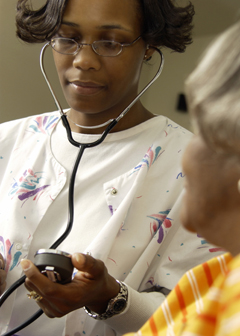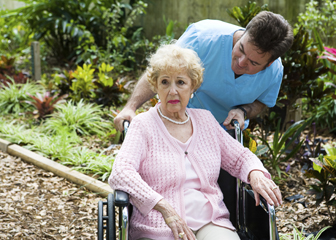Summary

| Quick Facts: Psychiatric Technicians and Aides | |
|---|---|
|
$26,880 per year
$12.92 per hour |
|
| See How to Become One | |
| None | |
| Short-term on-the-job training | |
| 142,500 | |
| 15% (About as fast as average) | |
| 21,800 | |
What Psychiatric Technicians and Aides Do
Psychiatric technicians and aides care for people who have mental illness and developmental disabilities. The two occupations are related, but technicians typically provide therapeutic care, and aides help patients in their daily activities and ensure a safe, clean environment.
Work Environment
Psychiatric technicians and aides work in psychiatric hospitals, residential mental health facilities, and related healthcare settings. They may spend much of their shift on their feet, and they have a relatively high rate of injury.
How to Become a Psychiatric Technician or Aide
Psychiatric technicians typically need postsecondary education, and aides need at least a high school diploma. Technicians and aides get on-the-job training before they can work without direct supervision.
Pay
The median annual wage for psychiatric technicians was $28,710 in May 2010. The median annual wage for psychiatric aides was $24,950 in May 2010.
Job Outlook
Employment of psychiatric technicians is expected to increase 15 percent from 2010 to 2020, about as fast as the average for all occupations. Employment of psychiatric aides is expected to increase 15 percent from 2010 to 2020, about as fast as the average for all occupations.
Similar Occupations
Compare the job duties, education, job growth, and pay of psychiatric technicians and aides with similar occupations.
O*NET
O*NET provides comprehensive information on key characteristics of workers and occupations.
Contacts for More Information
Learn more about psychiatric technicians and aides by contacting these additional resources.










